You may have heard that inducing at 39 weeks is safe, or maybe you just want to be done being pregnant. Either way, it’s an excellent idea to weigh out what’s important to you and the benefits or risks of inducing. I’m here to share what you need to think about before having a 39 week induction.
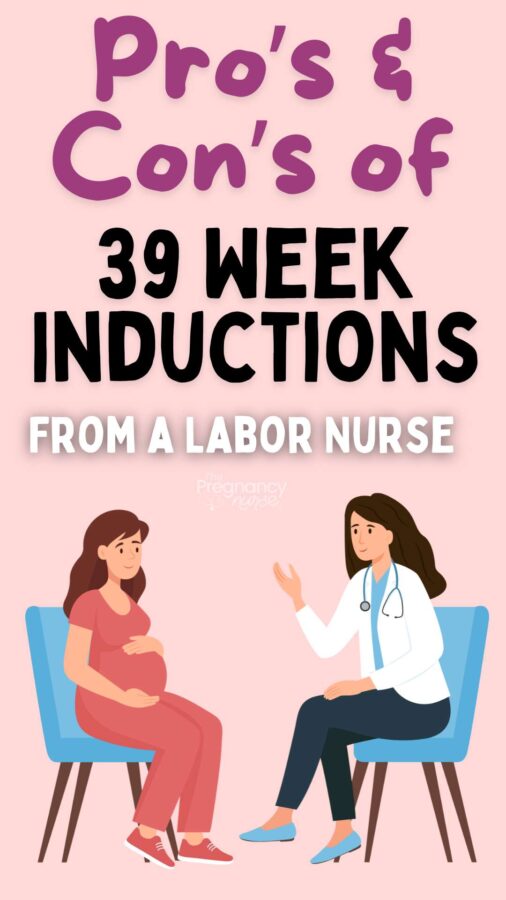
Note: While ACOG does recommend that patients should be asked if they’d like an induction at 39 weeks, this may vary depending on your delivery facility and if they can accommodate inductions like that. SO, not everyone has this option and it is an important talk to have with your provider.
At the same point, if your provider OFFERS a 39 week induction, that doesn’t mean you have to take it. It’s just an offer, so don’t feel pressured.
It’s definitely worth a conversation though, and I have a checklist you can go through with them so you’re very sure of what you’re facing if you do choose an induction.
Before we get going, I HAVE to ask if you’ve gotten your birth class in yet? For me, I think they should be mandatory. The good news is that it is NOT too late, I recommend this one and there is STILL time to get prepared for your hospital birth! 😍
History of Inductions
I think it’s important to know the history of inductions. Early in my career (think, mid 2000’s), providers could pretty-much induce whenever they wanted even if there wasn’t a reason. I had one doctor who routinely induced people at 37 weeks because “she didn’t want them to deliver on the side of the road.”
BUT in around 2011 hospitals were required to track why inductions prior to 39 weeks were happening, and there were strict guidelines of diagnoses in which we could allow patients to be induced. Things like diabetes, high blood pressure, low fluid. I actually have a whole post on 37 week inductions that goes over more on that.
This still allowed some grey area after 39 weeks for a while.
Until the Arrive Trial came on the scene in 2018.
The cliffnotes version of that trial is that they showed that waiting wasn’t any safer and didn’t have any more risk of a cesarean section than being induced. It did show some very small improvements in outcomes for babies who were induced rather than waiting. I actually have a whole deep dive on the Arrive Trial in a bonus video in here if you want to know more about it.
Since the Arrive Trial, other trials have tried to replicate it with mixed results. Some showed an increased cesarean rate, some showed other results.
This is the point in time where I mention if you want to find a trial to support your point of view, I think you can find it, so much of it depends on how they interpret the data. There doesn’t seem to be a clear answer on this one.
Many providers are 100% on board with the arrive trial and strongly encourage patients to be induced, and some aren’t. Some still recommend no elective inductions until closer to 41+ weeks.
Definition: Elective induction is one without a medical reason — so, you’d just like to be induced.
Personally, I think the data in that study is strong enough that people should be offered to be induced at 39 weeks of pregnancy. Some are tired, some really prefer to schedule things, and some will refuse. All of those are valid things. There really is not ONE right way to birth.
Of course, some birthing facilities are too crowded to accommodate all these elective inductions, as I talked about above — so, some people can’t be given this option.
BUT, just because you’re offered an induction, doesn’t mean you should take it. So, let’s talk about WHY.
Want to know more about inductions — check out these posts:
- Navigating Induction: Empowering Choice and Educating Yourself with Dr Elizabeth
- Induction: Reasons Pregnant Women are Induced
- 5 Reasons to NOT Get Induced
- What Happens if Your Induction Doesn’t Work?
- How to Ask Your Doctor to Induce You
Pro’s of a 39 Week Induction
Your baby will be be born — and you’re done being pregnant
This is clearly the big one. You’re tired of being pregnant, for a variety of reasons — and this ends your pregnancy. I see lots of people VERY happy with a chosen induction for this very reason. They were miserable, and now they’re not.
Possibly Healthier Babies
The arrive trial did show that waiting doesn’t improve outcomes for babies. We do know that as you get past your due date, your risk of stillbirth increases. It increases dramatically after 41 weeks if you look at the data.
The thought behind this is that your placenta has a “shelf life” and after 40 weeks it is done doing it’s job and just doesn’t give baby the blood supply it needs.
However, with things like kick counts, and checking baby on ultrasound, we can see how baby is doing in the womb. There are ways to check on baby. Kick counts being my favorite. If you don’t know what they are — grab my cheat sheet here:
That being said there is also another thought that pushing babies out of the womb “before they are ready” can lead to life-long issues. Some have suggested autism or allergies. However, no study has really pinpointed these issues.
My personal opinion on that is it’s hard to know when a “baby is ready” or when your body just won’t go into labor. I know a lot of people will say nature is best, but I have definitely seen times that nature was absolutely NOT best. I also strongly believe that some people will not go into labor on their own. They just won’t. I have no idea why — I just think this is a truth.
You Can Schedule It
I was induced on my last baby (12 days overdue) and I was surprised by how great it was to wake-up, get the kids to a friend’s house and have it all planned (rather than rushing around trying to figure out who’d watch them, etc).
A lot of people don’t like the anxiety of “when” baby will come or how they will be prepared.
So, ultimately an induction helps you to have an “end” date.
That being said — your baby really can come at any time, so it may still wreck your schedule, as babies do.
I honestly think that anyone considering an induction needs a birth class even more than others. I recommend this one to everyone having a baby — but it has lots of good induction information in it!
Con’s of a 39 Week Induction
There are some con’s that I think a lot of people don’t consider, and are really important as you make your choice… and yes, this checklist gives you the questions to ask your provider to make sure you’re getting it right for you:
They Tend to Last Longer
The arrive trial did show that those who were induced were in labor longer than those who waited.
Of course, this is a broad study over a wide population, and there was no segmenting of the data to show us how long it took for some people vs others based on their vaginal exams prior to the induction.
So, yes — if your cervix is closed, thick and high you’re in for a long induction and you should be aware of that before you go in.
However, if you’re 4 cm and your cervix is nice and soft (perhaps you’ve even already had another baby) than you’re more likely going to have a shorter induction.
We tend to call that the bishop’s score, and I talk about a favorable cervix << in that post.
The other annoying part is that these are all just guesses. We actually have no idea how long your induction will be. Sometimes those closed thick and high cervixes respond really well to induction agents and move along quickly. And sometimes those 4 cm cervixes go mind-numbingly slow.
And we, have no idea how yours will react, we can only talk in generalities that we have seen from others in your situation.
Want to know more about how long induction takes — check out these posts:
- Being Induced at 37 Weeks: What should you expect?
- How Long Does an Induction of Labor Take?
- How to Dilate Faster
- What To Do If Your Labor Goes Long?
Poorer Baby Outcomes?
Some people still believe babies have poorer outcomes when we induce.
I’m not sure the studies really show that. Even in studies that show increased cesarean rates, I haven’t really seen worse outcomes in babies, especially at 39 weeks.
That being said — we are definitely just looking at short-term outcomes like APGAR scores, admissions to the NICU etc. I haven’t seen long-term studies of these babies that has any definitive data.
And, I’ve seen plenty of term “came when they were ready” babies not do awesome out in our air-breathing world as well. It’s tricky.
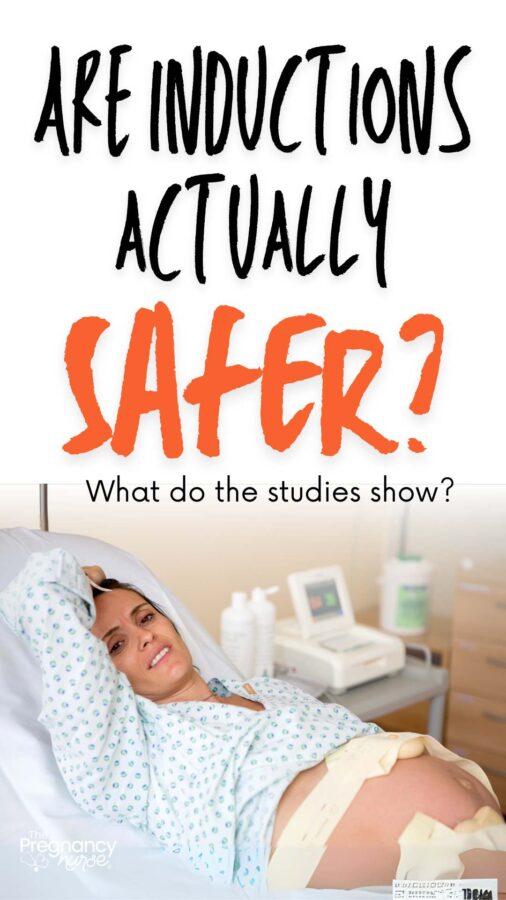
You’re In The Hospital
This is clearly a given, but being a home for all of labor just isn’t fun. Much of early labor involves cramping and sort of feeling “bleh” but still living your life at home. I always recommend you get engaged cooking, cleaning or watching a show you love on your yoga ball.
Mostly just to distract yourself, and maybe even be a bit productive.
You can’t do that in the hospital. You’re likely needing to be monitored, which can limit movement.
It doesn’t mean you CAN’T move, you just sometimes have to be creative about it. I talk about how to be creative about your movements in here.
Increased Risk of Cesarean
Although the arrive trial didn’t show an increase in caesarean sections, some of the further studies have shown some small increases. Again, because it all depends on how you decide to interpret the data.
I am a believer that the more we “do” to you (medically-wise) the more we may have to fix down the road. Baby may not like induction contractions, that may necessitate a cesarean section. I’ve definitely seen it — but I’ve also seen people in “natural” labor having the same thing.
Personally, I do think you need to think you may have a small increased risk of a cesarean section. So, the big question — is that worth it to you?
And, for every person the answer to that question will be different.
Adverse Drug Reactions
I almost didn’t include this, because I think it’s pretty rare, but we are giving you medications or trying things with your cervix (like a foley bulb). Like any intervention, these can have an adverse reaction. Your body can react to the medication, or it can go crazy with contractions.
As with any intervention it’s so important to know about — and your provider should discuss all these risks when they talk about a possible induction.
They Are Higher Risk / More Medical
Along with possible adverse outcomes from the drugs being induced just put you at higher risk.
We need to monitor you throughout the induction (we can’t not do intermittent auscultation). We need to do vital signs, we may need to check your cervix more.
It’s just more medical interventions.
By wanting an induction you’re asking for more medical interventions, and you will get them.
Most people, honestly, don’t mind them — but when you ask for the induction you’re asking for some extra things — and if you were to refuse them, we’d have to stop the induction.
Note: For some people, it being more medical is a PLUS, and for some people they absolutely hate it. SO considering your feelings about being in the hospital is important before you make a choice! Either way, you’re going to want to be prepared!
So, So Tired from Induction Process
This is the main thing I’ve seen.
Couples who just were not prepared (at all) for how long this induction was going to be.
How mentally draining it would be to hang out in the hospital and wait for something you so desperately want ASAP.
How much pain it will include — and this includes pain and sleeplessness before you’re really even ready for an epidural. It can just feel very crampy, very tiresome — you just can’t get comfortable (not to mention the hospital just SUCKS as a place to sleep).
I just did a post on if an induction is more painful than “regular” labor:
I see far too many moms wanting to throw the towel in early in the induction game and just wanting a cesarean. I worry they weren’t educated enough on what it would be like in advance. It’s honestly why I created the induction questionnaire. It’s really important to be fully informed on what your induction could look like. Here it is in case you missed it:
While that questionnaire is a great starting point I really believe every couple needs a prenatal class. AND if you’re considering an induction you REALLY NEED need one. More interventions just can lead to more anxiety, but not if you’re prepared — I recommend this one.
I will say the tired-ness of the induction, birth, and your postpartum stay in the hospital builds-up. You’re overwhelmingly tired by the time you get home, and yet you still have a baby that will wake you up at all hours. It is a LOT — and I would make sure you have a great support system waiting for you when you get home.
I do think that this may lead to….
Postpartum Complications
This may mean increased anxiety after birth, or possibly postpartum hemorrhages.
The use of Pitocin has been shown to increased postpartum hemorrhages (which is amusing since we also use it to stop them). Mostly because you’re drug is so full of it, it doesn’t care about the rush your body will send naturally after birth.
Again, these are rare — but important to talk with your provider about in advance.
Knowing the complications to watch for is also super important. I talk about that in my free class called Postpartum Care Made Easy. It’s so smart to learn about them ahead of time.
I mostly see a lot of people who think an induction is an easy way out of pregnancy. And frankly, for some it is. My own induction was pretty fast. I was already 5 cm when I came in, I was overdue and if I had let them break my water earlier I bet I could’ve had her within 5 hours of walking into the hospital.
This is because my cervix was VERY ready, and my uterus just needed a little help getting contractions strong enough to move that baby into the birth canal.
Every person’s situation is different. You need to decide:
- What’s important to you (is it being home, is it being done pregnant, is it not using medical pain management options)
- What’s your body showing you — are you already dilated, or is baby very low in the birth canal?
- What’s best for you & baby — of course, some inductions are very necessary and that choice is very different than an elective induction.
Reminder: There is no ONE RIGHT WAY TO BIRTH. Don’t fool yourself into thinking there is a right answer. There’s looking at data, looking at what’s important to you, and looking at your personal health situation right now, and then make the choice that feels the best to you.
One of my best pro tip’s is to be sure to take a birth class that doesn’t act like there is one right way to have a baby. Some instructors really put their own bias into the class, and I don’t think you need that. Again, I recommend The Online Prenatal Class for Couples — but whatever class you take — make sure it supports you in whatever type of birth you end-up having.


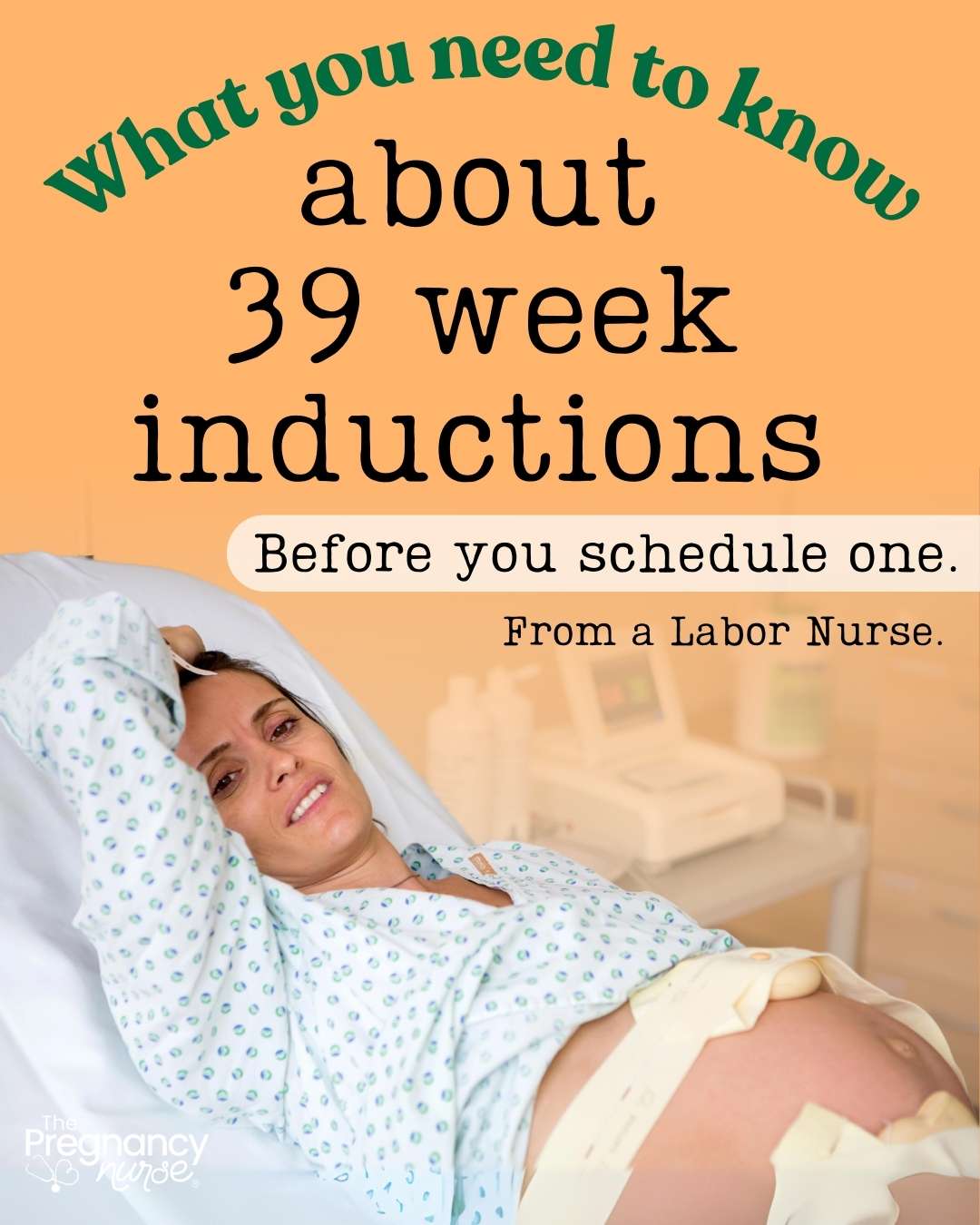
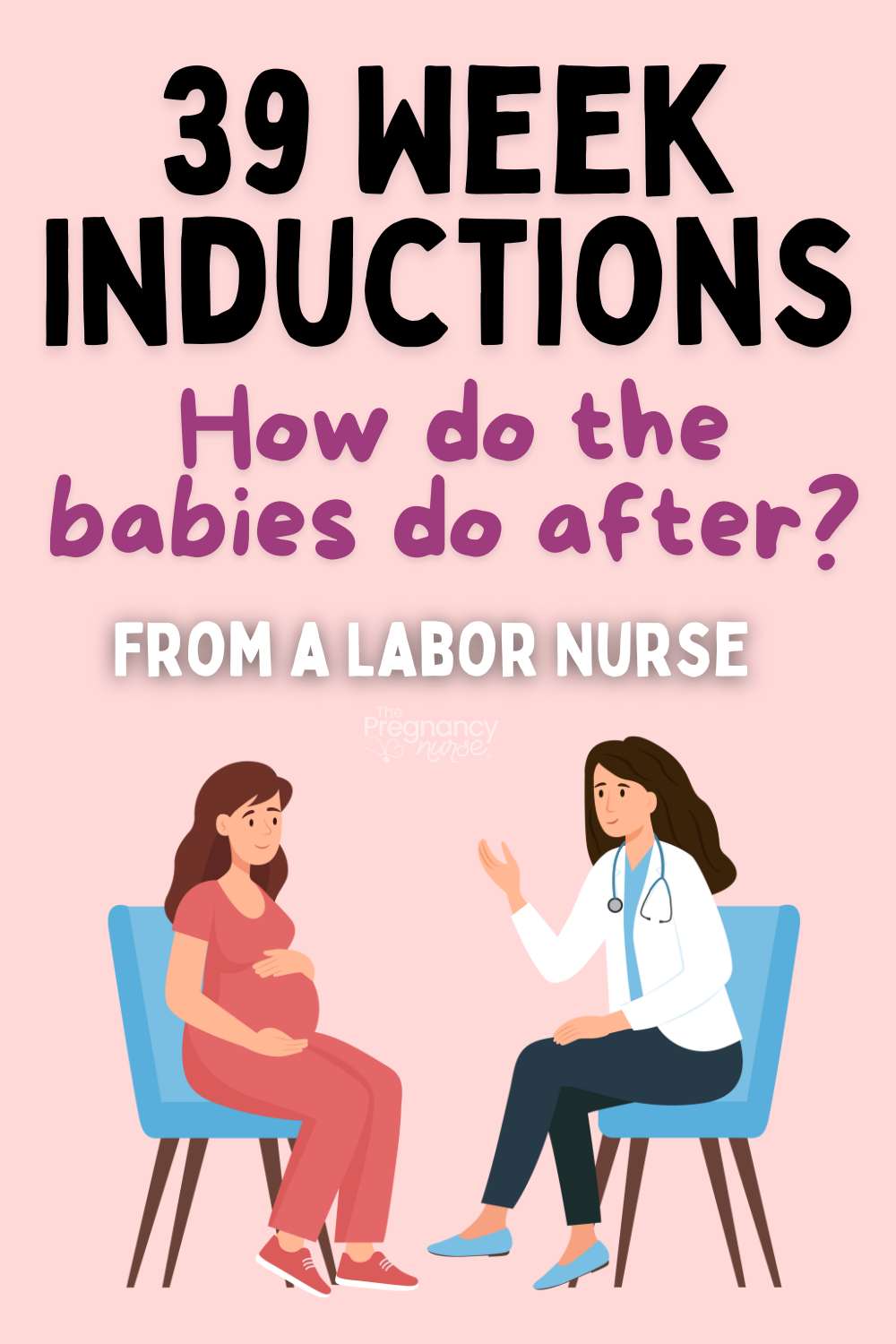

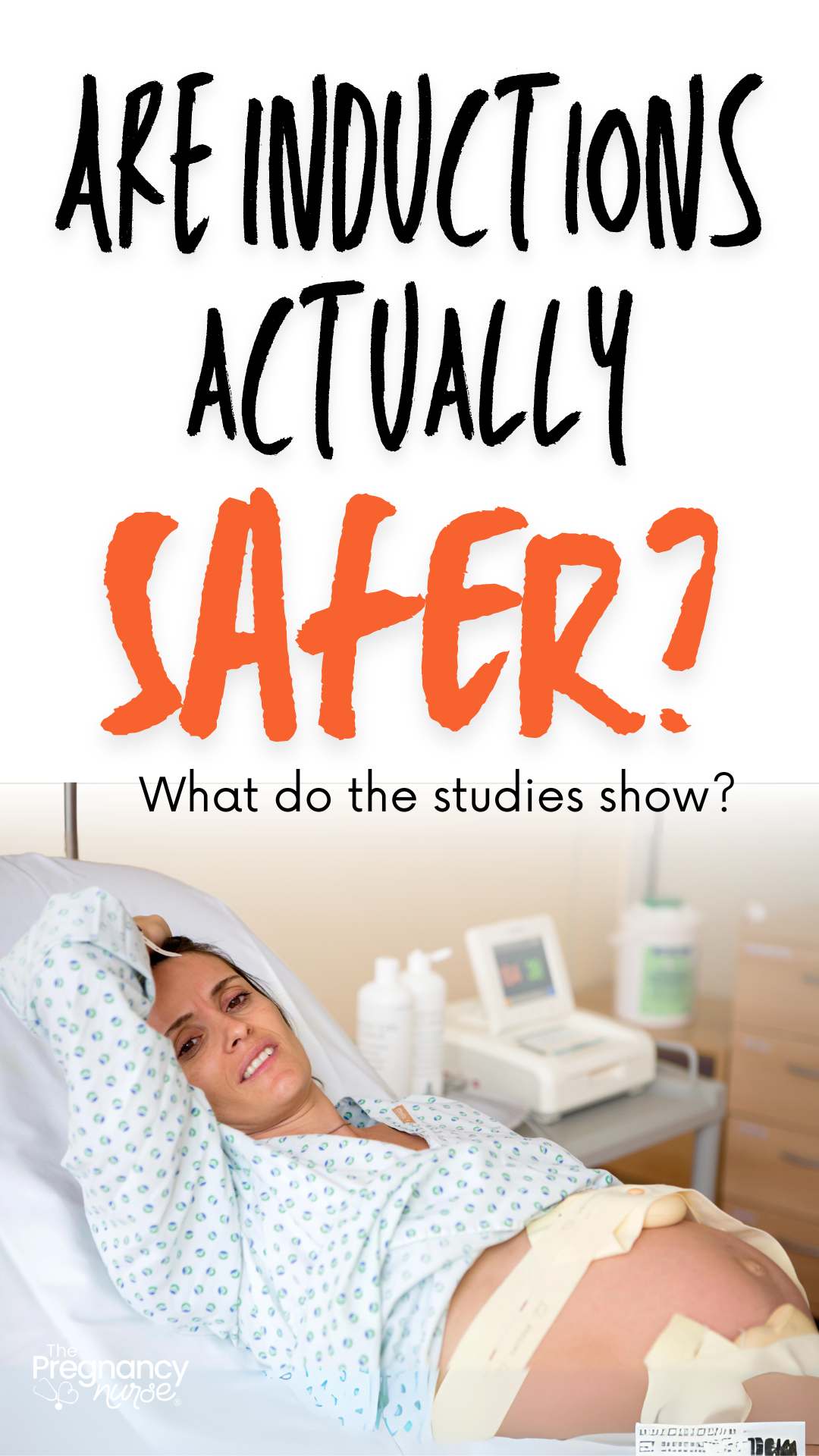
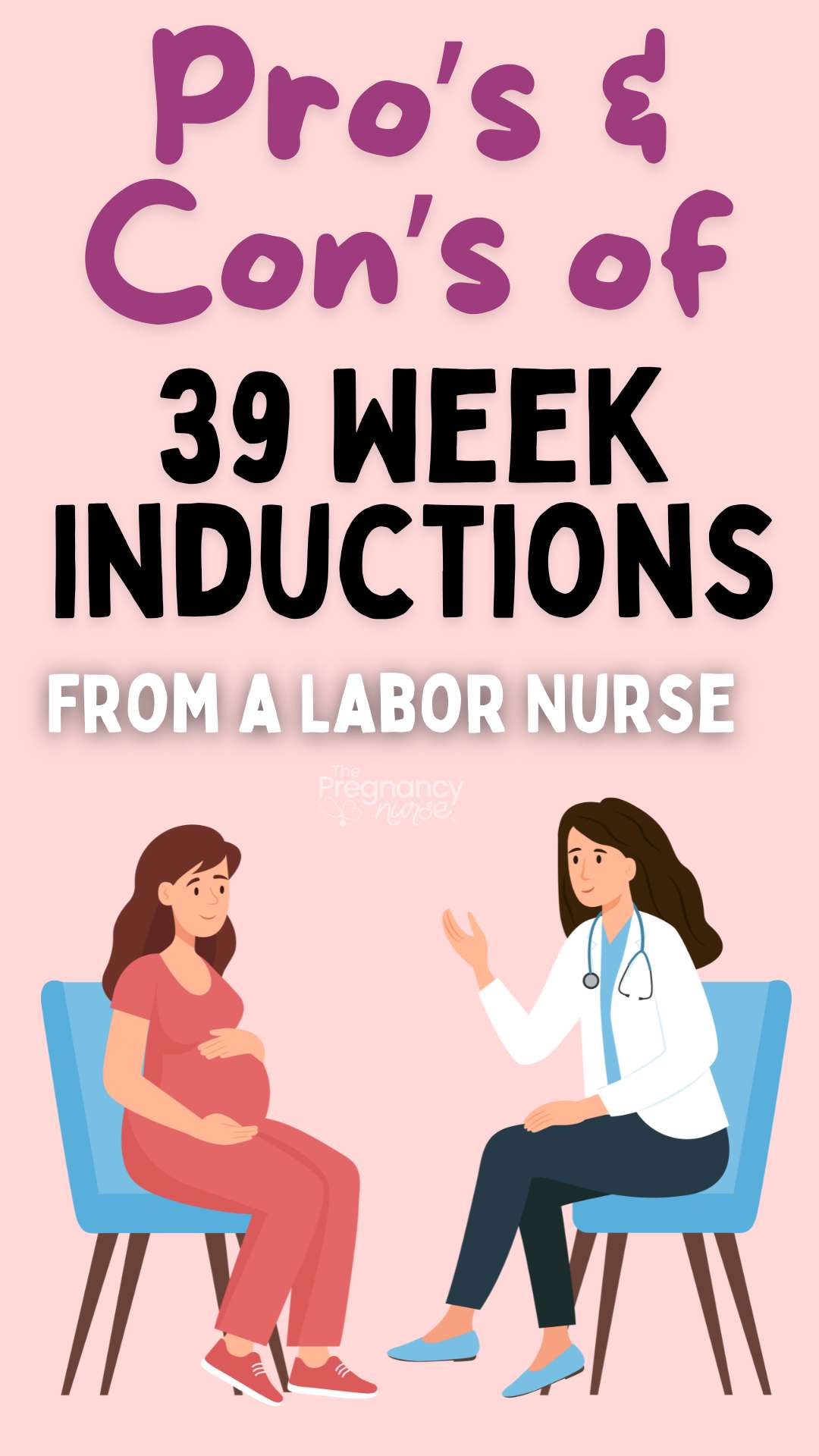


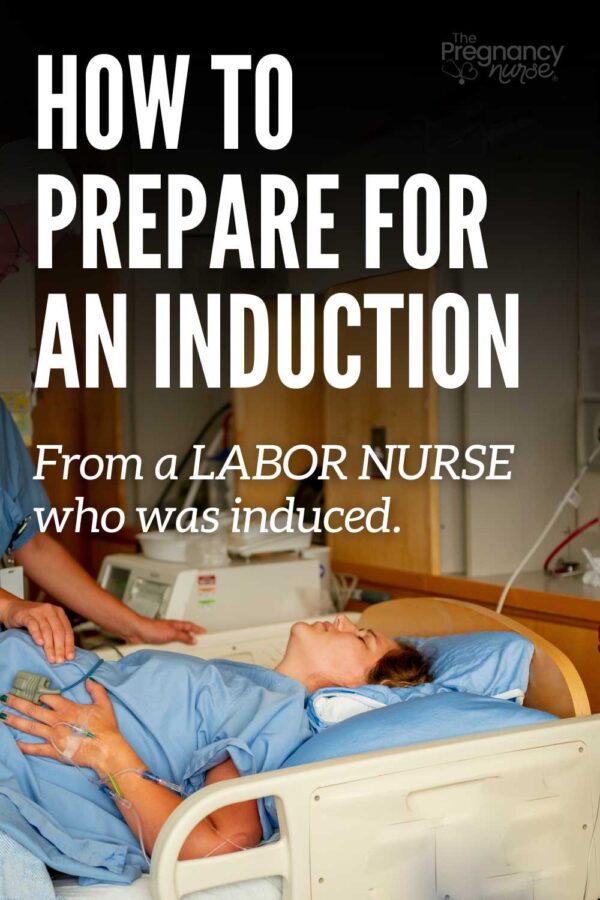
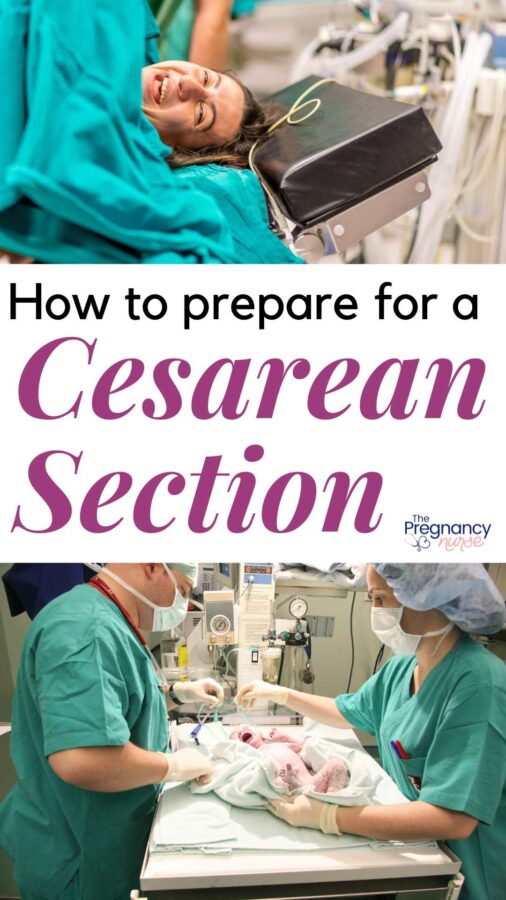
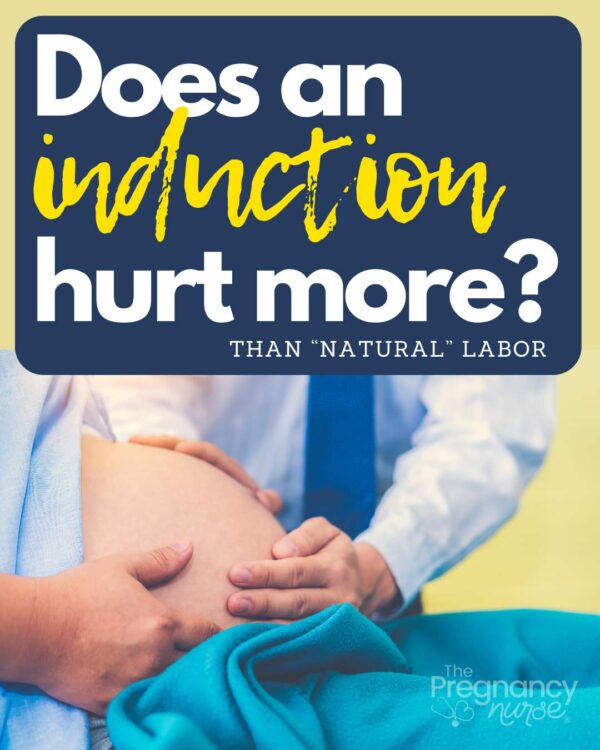



 Bladder Infections in Pregnancy
Bladder Infections in Pregnancy
